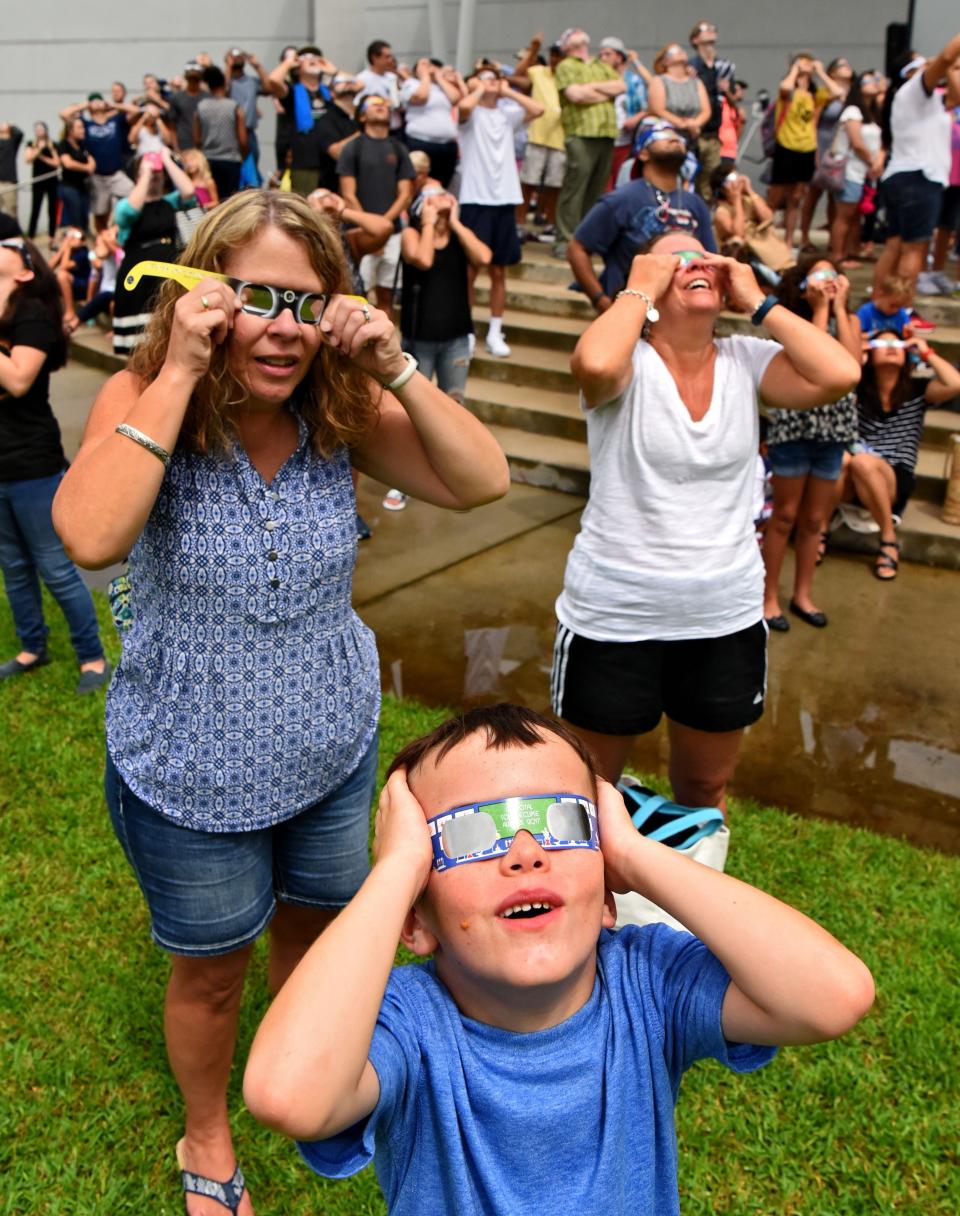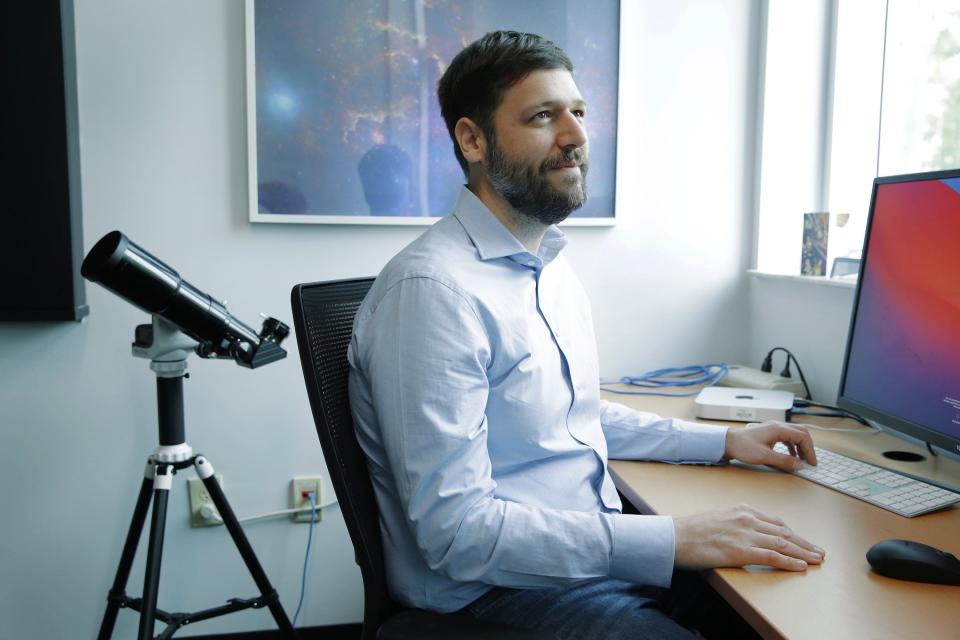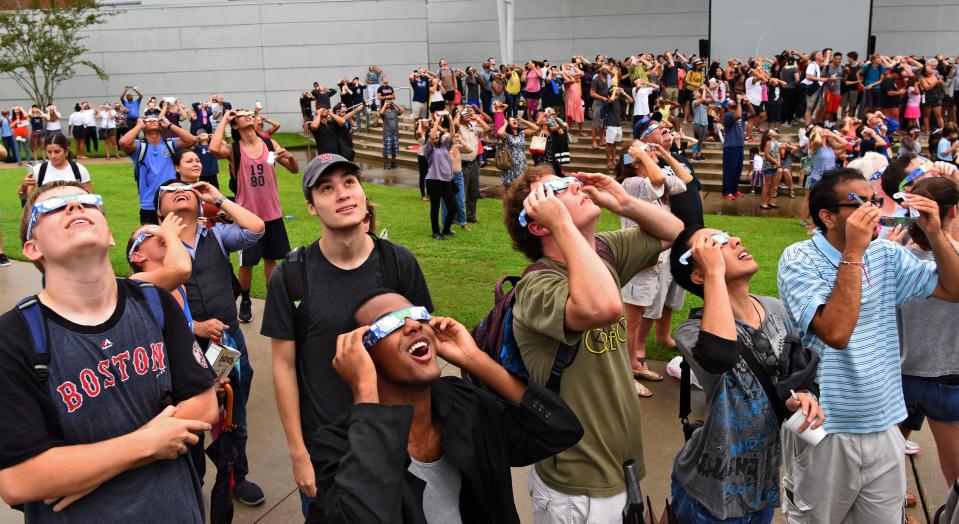What Jacksonville area can expect from eclipse: UNF prof explains ahead of viewing party
The University of North Florida is hosting an eclipse viewing party Monday, but don't expect to see any astronomy professors there. They'll all be off somewhere west, in the path of totality, relishing the total darkness. Really, though, given how rare total eclipses are, you can't begrudge them that.
Consider Jack Hewitt, an associate professor who teaches astronomy and physics. He saw the 2017 total eclipse from Idaho and plans to see this one with his 6-year-old daughter while visiting his grandparents (who've never seen an eclipse) near Terre Haute, Ind. There also was one here in 1970.

It's a rare event: The next total solar eclipse in the continental U.S. isn't until 2044. And if you miss that one, you'll have a chance the very next year, in 2045.
If you happen to be in Jacksonville in 2045, you'll be close to the main attraction. Most of Florida except for Jacksonville and extreme South Florida will be in the path of totality, Hewitt said.
To be sure, that seems a long way off, Hewitt says: “My students say, 'Wow that’s so far from now. We’re going to be so old.' I told them, 'You’re going to be my age!'”
What will the eclipse look like from Jacksonville?
Jacksonville’s not in the path of totality, so we won’t see the sun totally obscured by the moon. Instead, we’ll see about 63% of the eclipse, which is still enough to cause eye damage without special glasses or a pinhole viewer.
“If it’s clear, which is not a guarantee, if you didn’t know it was happening you probably wouldn’t notice it," Hewitt said.
Solar eclipse 2024: What time is the April 8 solar eclipse in Jacksonville? Find out with your ZIP code
In 2017: For many, clouds part to save eclipse view in Jacksonville
So why go to an eclipse viewing party?

The university will have solar telescopes for viewing the eclipse, and Action News Jax will be handing out free solar eclipse glasses. “It’s really cool to see through a telescope or even eclipse glasses," Hewitt said.
Large screens will show NASA's live feed of the eclipse, and there will be activities for kids and families.
When is the eclipse party?

The UNF Eclipse Watch Party will take place from 2 to 4 p.m. Monday at the J.B. Coxwell Amphitheater.
The event is free but parking at UNF in Lot 18 costs $2. A parking permit can be purchased at a Pay-by-Plate kiosk or the smartphone Flowbird app. The university is suggesting you take chairs or blankets with you to sit on during the viewing.
The moon will first start to block the sun at 1:47 p.m. In Jacksonville, expect the solar eclipse to peak at 3:05 p.m. There, about 64% of the sun will be obscured by the moon at the peak. The skies will be back to normal at 4:19 pm.
Will Florida residents see the solar eclipse? Yes and no. Let us explain
This article originally appeared on Florida Times-Union: Solar eclipse 2024: What you can expect to see in Jacksonville

